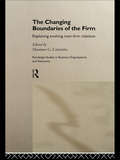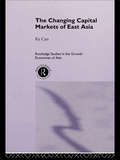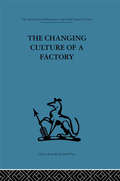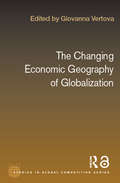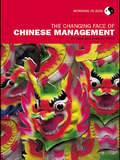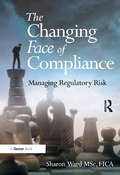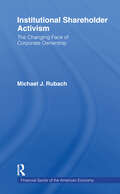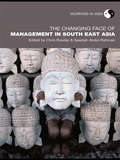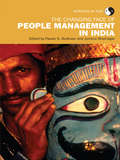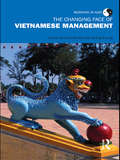- Table View
- List View
The Changemaker Mindset: How Innovation and Change Starts with Inner Transformation
by Ilja GrzeskowitzPersonality is the Key to Professional SuccessPersonal relationships are key to success: In a time when workplaces are becoming more digital and more automated every day, our mindsets and our personal relationships will determine whether we succeed in tomorrow’s markets. We all have one shot to make a lasting impact. Innovators with the changemaker mindset know how to see that opportunity when it comes and make it matter.The human success factor: In the coming years, the human success factor will determine who is among the winners and who is among the losers. All business adventures start with a focus on the self. When you know who you are and develop a deep sense of confidence in yourself, you’ll have the flexibility to roll with the punches.Change comes from within: Whether your goal is to lead a self-determined life, position your company for the future, or be a successful part of a team, external change starts with internal transformation.With The Changemaker Mindset, you’ll master the three Ps of personal development:Purpose. Reconsider what motivates you and find your non-negotiable core principles.People. Build a strong inner circle of peers, because nobody wins alone.Persistence. Develop the confidence to take action, navigate setbacks, and implement change.Readers who liked The 7 Habits of Highly Effective People by Stephen Covey, Leading Change by John Kotter, and The Innovator's Dilemma: When New Technologies Cause Great Firms to Fail by Clayton Christensen will love this new approach to effective business management from personal development.
The Changing Boundaries of the Firm: Explaining Evolving Inter-firm Relations (Routledge Studies In Business Organizations And Networks Ser.)
by Massimo G. ColomboThis book offers a distinctive analysis of the relations and interplay between the internal activities of firms, their changing boundaries, and increasing reliance on networks and alliances with other firms.The contributors offer a blend of theoretical and empirical studies; they are based on a set of related perspectives in modern economics, inclu
The Changing Business Landscape of Romania: Lessons for and from Transition Economies
by Andrew R. Thomas Constantin Bratianu Nicolae Al. PopRomania stands at the crossroads of Europe, Asia, and the Middle East. Since 1990, when the country experienced the bloodiest revolution of all of the Warsaw Pact members, Romania has gone through withering change. While the formal transition from a totalitarian, communist state was completed in 2007 with Romania's accession into the European Union, the adaptation of the nation's people and business climate to a market-based economy is a daily occurrence. In the 2000's, in the lead up to EU accession, Romania was one of the largest recipients of Foreign Direct Investment in the world. While multinational corporations poured in hundreds of billions of dollars, there was also a restructuring of the way business was conducted. Western systems of management and organization--foreign to most Romanian academics and business people--almost overnight transformed the way the marketplace was perceived. Romania's entrepreneurs were quick to adapt to the new ways, leveraging new opportunities in the environment. Fortunes were made. Multinationals also burgeoned in Romania. Companies like Microsoft, General Electric, Timken, Kraft, P&G, Renault and dozens of others successfully took advantage of the possibilities created by a relatively well-educated population that was moving into the middle class. For the most part, however, researchers and scholars were caught off guard by the quickening pace of business change in Romania. Only until very recently has the academic community at large been able to wade through the murkiness and begin to see what the new landscape looks like. It is the purpose of this edited volume, which includes the work of some of Romania's finest business scholars, to provide even greater clarity to the current and future scene. Moreover, the experience in Romania helps shed light on the dynamics of economic and business transition throughout Eastern Europe, the Middle East, and other emerging regions, with implications for practice, policymaking, and research.
The Changing Capital Markets of East Asia (Routledge Studies In The Growth Economies Of Asia)
by Ky CaoIn recent years much attention has been given to the unparalleled economic development of East Asia. In The Changing Capital Markets of East Asia the contributors look at the growing sophistication of capital markets in this area and discuss the possible economic and political consequences. The theme of the book is more strategic than technical and
The Changing Culture of a Factory
by Elliott JaquesTavistock Press was established as a co-operative venture between the Tavistock Institute and Routledge & Kegan Paul (RKP) in the 1950s to produce a series of major contributions across the social sciences. This volume is part of a 2001 reissue of a selection of those important works which have since gone out of print, or are difficult to locate. Published by Routledge, 112 volumes in total are being brought together under the name The International Behavioural and Social Sciences Library: Classics from the Tavistock Press. Reproduced here in facsimile, this volume was originally published in 1951 and is available individually. The collection is also available in a number of themed mini-sets of between 5 and 13 volumes, or as a complete collection.
The Changing Dynamic of Government–Nonprofit Relationships: Advancing the Field(s) (Elements in Public and Nonprofit Administration)
by Steven Rathgeb Smith Kirsten A. GrønbjergWe advance nonprofit scholarship by using the conceptual framework of policy fields to examine differences across nonprofit fields of activity. We focus on the structure of relationships among four sectors (government, nonprofit, market, informal) and how relationships differ across policy fields (here health, human services, education, arts and culture, and religion). The fields differ notably in the economic share that each sector holds and the functional division of labor among the sectors. Systemic differences also exist in how the nonprofit sector interacts with the government, market, and informal sectors. The policy fields themselves operate within national contexts of distinctive economic and political configurations. The framework explores how government-nonprofit relationships differ across policy fields, the factors responsible for this variation, and offers predictive capacity to generate hypotheses and research designs for additional research. We provide insights on how nonprofit organizations differ in key sub-fields with direct relevance for policy and practice.
The Changing Dynamics Of International Business In Africa
by Ifedapo Adeleye Lyal White Kevin Ibeh Abel KinotiAfrica is rising. Once dubbed "the hopeless continent", it is now widely regarded as the next growth frontier for global capitalism. Over the last decade or so, the continent has become more fully integrated into the global economy with a phenomenal surge in foreign direct investment from emerging economies. The increase in the power and influence of emerging market multinationals is dramatically changing the business landscape in the region, and prompting discussions on the decline of theWest in Africa. However, it is not only emerging market multinationals that are rising in Africa, as many 'home-grown' giants are expanding and successfully competing regionally. The research papers and cases in The Changing Dynamics of International Business in Africa provide multi-disciplinary insights on the opportunities and challenges of doing business in Africa, as well as on the changing competitive dynamics in the region, as Western, BRIC and African multinationals intensify their fight for market dominance.
The Changing Economic Geography of Globalization (Routledge Studies in Global Competition)
by Giovanna VertovaThe process of globalization has had profound, often destabilizing, effects on space, at all levels (i.e. local, regional, national, international). This revealing book analyzes, both theoretically and empirically, the effects of globalization over space. It considers, through a dialogue among different paradigms, the ways in which space has become more important in the global economy. Globalization has been advocated as a way of shrinking time and space which will lead to a homogenized global market; a suggestion challenged in differing ways and with a variety of approaches by all the contributors to this volume. Leading authorities from a range of disciplines are represented amongst this impressive list of contributors, including Eric Sheppard, Bjørn Asheim, Richard Walker and Peter Swann. The chapters demonstrate persuasively the continuing, and even increasing, role of space in the global economy, and throughout, the book covers viewpoints from the fields of: international political economy economic geography regional and local economics. This impressive volume, which contains a selection of the best in contemporary scholarship, will be of interest to the international arena of academicians, policy makers and professionals in these or related fields.
The Changing Face Of Economics: Conversations with Cutting Edge Economists
by J. Barkley Rosser David C. Colander Richard P. F. HoltThe Changing Face of Economics gives the reader a sense of the modern economics profession and how it is changing. The volume does so with a set of nine interviews with cutting edge economists, followed by interviews with two Nobel Prize winners, Paul Samuelson and Kenneth Arrow, reflecting on the changes that are occurring. What results is a clear picture of today's economics--and it is no longer standard neoclassical economics. The interviews and commentary together demonstrate that economics is currently undergoing a fundamental shift in method and is moving away from traditional neoclassical economics into a dynamic set of new methods and approaches. These new approaches include work in behavioral economics, experimental economics, evolutionary game theory and ecological approaches, complexity and nonlinear dynamics, methodological analysis, and agent-based modeling. David E. Colander is Professor of Economics, Middlebury College. J. Barkley Rosser, Jr. , is Professor of Economics and Kirby L. Kramer Jr. Professor of Business Administration, James Madison University. Richard P. F. Holt is Professor of Churchill Honors and Economics, Southern Oregon University.
The Changing Face of Angel Investing
by William A. Sahlman Evan RichardsonAngel investors Ram Shriram, Mike Maples, Eric Paley, James Geshweiler, and Jim Southern discuss their investment philosophies and the changing landscape of angel investing. Questions include: How has angel investing changed in the last few years? How do you evaluate a prospective investment's attractiveness? How do you think about risk and reward in angel investing? Is it possible for Angel funds to be too big?
The Changing Face of Chinese Management
by Tang Jie Anthony WardChinese management has experienced a dramatic change in recent years. In many areas, established ideas about how Chinese management operates are oversimplified and outdated. This book sets out to provide a more realistic portrait of Chinese management today, and how it has changed dramatically over the past ten years. The portrait of contemporary Chinese management draws on extensive interviews with Chinese managers conducted by the authors. These provide a wealth of concrete illustrations of how managers deal on a daily basis with the opportunities and threats they face.
The Changing Face of Compliance: Managing Regulatory Risk
by Sharon WardIn the current business climate the impact of the volume and nature of regulatory change and the regulatory risk arising from this is a significant business risk for regulated firms and regulators alike. As a consequence, management of this risk is increasingly high on the board agenda of regulated firms, with those business functions whose activities support this, such as Compliance, facing increasing levels of challenge in their efforts to be effective. The Changing Face of Compliance addresses core aspects of this challenge, considering the relationship between regulation and compliance and key influences on both, offering insight into the effectiveness of current approaches and addressing practical compliance challenges. Sharon Ward explains how the role of Compliance might be strengthened and those who work within it further enabled to support the current focus on improving standards in business, offering recommendations for enhancing this role. The text includes a mix of hands-on advice, examples and research based on the experiences of practitioners, educators and regulators drawn from across a wide range of jurisdictions and sectors. This is a thoughtful and timely book, whether you are concerned about the growing and changing implications of regulatory risk; the benefit of leveraging additional value from your Compliance function or your own Compliance role; or ways of transforming and sustaining the function to ensure its continued relevance to the business.
The Changing Face of Corporate Ownership: Do Institutional Owners Affect Firm Performance (Financial Sector Of The American Economy Ser.)
by Michael J. RubachFirst Published in 2000. This book examines the shareholder activism of institutional investors and the effect of shareholder activism on portfolio performance. Institutional shareholder activism includes both traditional mechanisms of influence (e.g., filing shareholder proposals) and relationship investing (e.g., long-term interorganizational contacts between owners and a corporation’s top managers).
The Changing Face of Corporate Ownership: Do Institutional Owners Affect Firm Performance (Financial Sector of the American Economy)
by Michael J. RubachFirst Published in 2000. Routledge is an imprint of Taylor & Francis, an informa company.
The Changing Face of Imperialism: Colonialism to Contemporary Capitalism
by Sunanda Sen Maria Cristina MarcuzzoThis volume reiterates the relevance of imperialism in the present, as a continuous arrangement, from the early years of empire-colonies to the prevailing pattern of expropriation across the globe. While imperialism as an arrangement of exploitation has sustained over ages, measures deployed to achieve the goals have gone through variations, depending on the network of the prevailing power structure. Providing a historical as well as a conceptual account of imperialism in its ‘classical’ context, this collection brings to the fore an underlying unity which runs across the diverse pattern of imperialist order over time. Dealing with theory, the past and the contemporary, the study concludes by delving into the current conjuncture in Latin America, the United States and Asia. The Changing Face of Imperialism will provide fresh ideas for future research into the shifting patterns of expropriation – spanning the early years of sea-borne plunder and the empire-colonies of nineteenth-century to contemporary capitalism, which is rooted in neoliberalism, globalization and free market ideology. With contributions from major experts in the field, this book will be a significant intervention. It will be of interest to scholars and researchers of economics, politics, sociology and history, especially those dealing with imperial history and colonialism.
The Changing Face of Japanese Management (Working in Asia)
by Keith Jackson Miyuki TomiokaFor many western managers the approach taken by successful Japanese organisations and their managers has tended to inspire awe, envy and incomprehension in equal measure. But what is so special about 'Japanese' management? And how 'special' is the response of Japanese managers to global business pressures ? This textbook addresses these questions. It presents case examples generated from interviews with Japanese managers in Japan, Europe and the USA, contextualising their comments by reference to recent research in the fields of international and intercultural management. The book explains how and why individual managers variously perceive threats or opportunities in the business and career environments currently evolving both inside and outside Japan. It combines vivid images of the expected and the exceptional, the traditional with the new and unfamiliar.The Changing Face of Japanese Management offers management students with little prior knowledge of Japanese business and society, critical insights into what is happening inside Japanese management today. It also offers clear and immediately transferable insights to management practitioners who are preparing to work or negotiate with Japanese business partners.
The Changing Face of Korean Management (Working in Asia)
by Chris RowleyPart of the successful Routledge ‘Working in Asia’ series, The Changing Face of Korean Management focuses on a country that is predicted by some experts to become the world’s third richest by 2025. South Korea, with its thriving telecommunications and automotive industries, and increasing trade links with China, survived the 1997 Asian Economic Crisis better than most. This important textbook explores the key areas of management in this pivotal country in the region, including: Human Resource Management Marketing Operations Finance Strategy Overseas affiliates Small firms and entrepreneurship Women Including case studies and interviews with front-line Korean managers to enable a real ‘voice’ to emerge, and written by native academics, this is a complete analysis of the current state of management structures in South Korea. It is important reading for all students of business and management interested in Asia.
The Changing Face of Management in China (Working in Asia)
by Fang Lee Cooke Chris RowleyChina is one of the fastest developing emerging economies in the world today. The country has a huge influence on a global level, both politically and economically. Despite this, very few books cover both the full range of management functions, and the key issues facing managers in this unique business environment. The Changing Face of Management in China explores the key challenges facing businesses and managers in China, across management functions, as well as across a range of sectors and organization types. Written by prominent scholars with direct experience in this market, this book adds to the existing body of knowledge by examining a range of areas of Chinese management in the context of local political, economic and social traditions, and the global economy. Part of the successful Working in Asia series, this book includes case studies that allow the voices of local managers to be heard, as well as extensive bibliographies pointing students and researchers to the most up-to-date sources of information in this important area.
The Changing Face of Management in South East Asia (Working in Asia)
by Chris Rowley Saaidah Abdul-RahmanSouth East Asia has undergone important economic, social and political developments in the last decade. The emergence of China as Asia’s largest pool of cheap labour has resulted in remarkable changes in the volume of foreign direct investment it commands, while the 1997 Asian Financial Crisis has undoubtedly influenced managerial practices in the majority of the countries in the region. In response, South East Asian governments and businesses have sought ways of attracting new investors while intensifying their efforts to retain existing industries. This important new volume overviews the development of South East Asian management practices, focusing on human resource management (HRM) as an indicator and measure of change. Written by prominent scholars of the region, the book focuses on reform in the human resource (HR) managerial domain, documenting recent changes and assessing current practices from both macro and micro perspectives. A consistent structure and content is used throughout, with each chapter incorporating ‘real-life’ local organizational and manager case studies, plus vignettes to give ‘voice’ to practitioners and developments. This is essential reading for anybody with an interest in management, HR or the political, social, cultural and economic profiles of the countries of South East Asia.
The Changing Face of Management in Thailand (Working in Asia)
by Tim Andrews Sununta SiengthaiIn the decade following the Asian financial crisis of 1997-1998, the management of organizations in Thailand has undergone significant change and development. The Changing Face of Management in Thailand examines in-depth the development of management during this pivotal period in the country’s recent history. The book draws together an impressive assortment of scholars, consultants and practitioners, whose experience and expertise significantly enhance our knowledge and understanding of this complex, multi-faceted Asian economy. The book is divided into 3 main sections: an examination of the political, economic, social and technological changes from 1997-2008 specialist chapters that contextualise these developments from the marketing, HR and finance perspectives concluding sections focusing on public sector organizations, women managers, corporate governance, e-communication and the ‘Thailand Brand’. With a wealth of vignettes, anecdotes and illustrative quotations bringing each chapter to life, this volume offers a refreshing, updated and in-depth analysis of this rich, diverse and fascinating nation.
The Changing Face of Multinationals in South East Asia
by Tim Andrews Bryan J. Baldwin Nartnalin ChompusriThis book examines how and why corporate strategy, structure and culture is continuing to change markedly in South East Asia. Among the issues that have forced widespread changes in the region are the economic meltdown, the growth in electronic technology, regional market integration, changing levels of education, business process standardisation a
The Changing Face of People Management in India (Working in Asia)
by Pawan S. Budhwar Jyotsna BhatnagarIndia has been identified as one of the biggest emerging markets in the world. Indian organizations have increasingly begun to understand the importance of human resources and have started to take into account the motivation, commitment and morale of its workforce. Despite great advances in human resource practices in India, the relevant literature on this subject remains scarce. This book seeks to fill the critical gap in the literature by providing a thorough understanding of the changing face of Indian HRM systems. Seeking to provide a comprehensive overview of Indian HRM practices, the book is structured into five parts: Developments in Indian HRM Determinants of Indian HRM Sector specific HRM Emerging themes Future challenges and the way forward The Changing Face of People Management in India is written exclusively by Indian natives in order to minimise the Western bias and to provide a realistic picture of HRM practices in India. This book is a key resource for anyone studying or working in HRM or international business or with an interest in the unique Indian HRM context.
The Changing Face of Vietnamese Management (Working in Asia)
by Chris Rowley Quang TruongVietnam has emerged from long periods of colonialization, wars and ideological conflicts to become an important economic force within Asia and a promising destination for international business ventures. The latest book in the popular Working in Asia series, The Changing Face of Vietnamese Management, draws on the experiences of local, Vietnamese experts to offer a unique perspective on the opportunities, challenges and issues facing managers and organizations operating in this fascinating emerging market. The book: Contextualizes political, economic and social traditions Discusses Vietnam’s competitiveness within the global economy Analyzes key functional areas, including HRM, marketing, finance and strategy Examines key issues and new developments in management and business This key text includes illustrative case studies and vignettes to provide broad coverage and content that would serve the needs of students and managers alike.
The Changing Face of Women Managers in Asia (Working in Asia)
by Chris Rowley Vimolwan YukongdiThe influence of Asian cultures and religious traditions has often been used to explain Asian women’s under-utilisation and under-representation in management. This book examines the influence of culture and tradition on organisational and management practices, and how these affect the progress of women in management in Asian economies. This book, written by prominent scholars of the Asian region, explores which organizational and management practices are universal, and which other aspects (such as human resource practices) are culture specific, and how these in turn affect the advancement / representation of women in the Asian region. Higher educational levels, falling fertility rates and sectoral changes have contributed to women’s increasing participation in the labour force. As women become more educated and qualified for managerial positions, the number of Asian women managers and executives is predicted to rise over the next decade. The Asian economies covered by this up-to-date collection have undergone rapid economic transformation. Until now, most research on contemporary women managers has been drawn from studies conducted in developed countries. Covering case studies in China, Hong Kong, Japan, Malaysia, Singapore, South Korea, Taiwan, Thailand and Vietnam, this book uses different perspectives to examine the constraints, opportunities and challenges for women managers in the Asian context and presents an update on their progress in management.
The Changing Financial Landscape: Financial Performance Analysis of Real and Banking Sectors in Europe (Contributions to Economics)
by Anastasios Karasavvoglou Persefoni Polychronidou Goran KaranovicThis book offers new insights and perspectives on the financial and banking sector in Europe with a special focus on Central and Southeastern European countries. Through quantitative and qualitative analysis of primary sources and datasets, the book examines both the financial development and performance of the real sector of the economy and the impact and involvement of the banking sector. The contributions offer new insights into current financial innovations and discuss best practices in innovative financial solutions. They also highlight new perspectives in finance and analyze characteristic problems in the real and banking sectors in various European countries. The insights and financial solutions presented in this book will be of interest to scholars of finance and financial economics as well as practitioners in the financial industry and policy makers.

